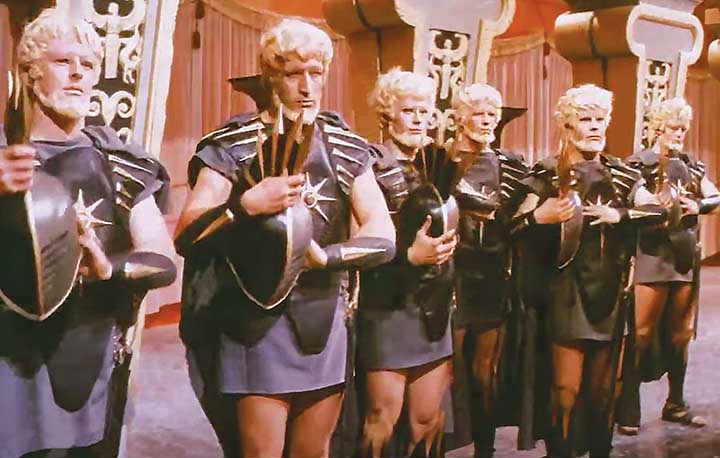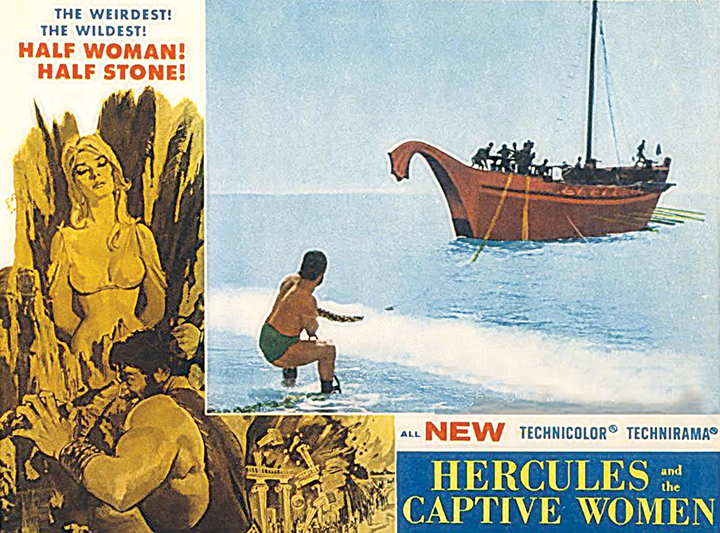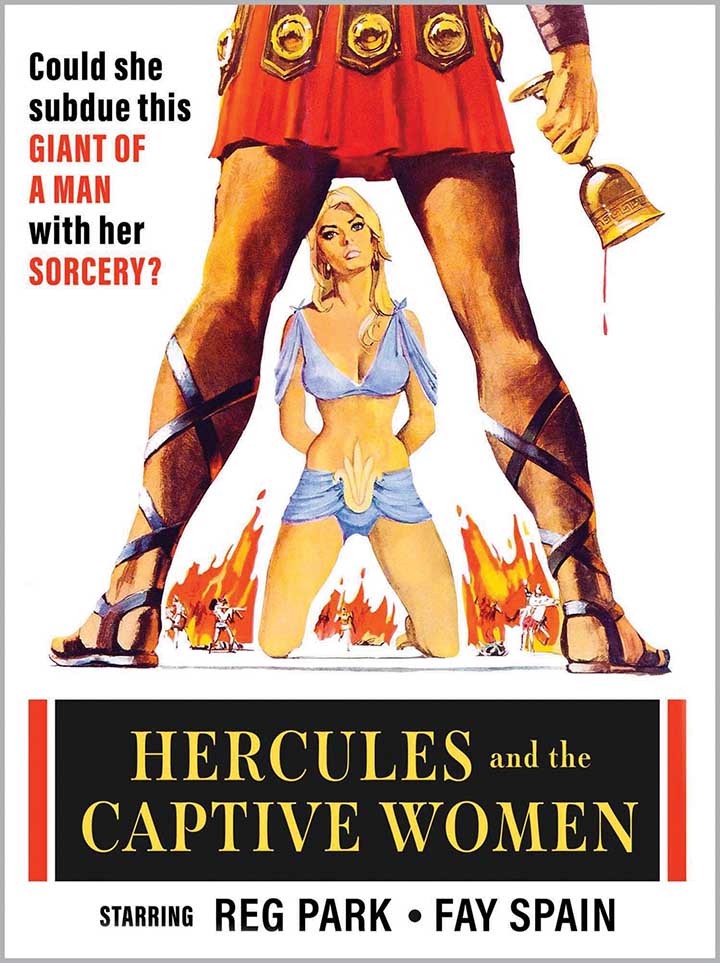
Nice knockers (on the hero)
‘Hercules and the Captive Women’ (1963)
The Film Detective
$24.95 (Blu-ray), $19.95 (DVD)
95 minutes plus special features
Not rated
By Mark Voger, author
“Holly Jolly: Celebrating Christmas Past in Pop Culture”
We have here a Hercules movie in a pristine restored print … with titles by Filmation (who apparently gave this project top priority) … a bombastic score that borrows cues from Universal’s music library … magnificent sets filmed at a studio built a generation earlier by Benito Mussolini to produce Fascist propaganda films … lovingly photographed scenic locations … hundreds of extras and dozens of horses …
It looks like a friggin’ Charlton Heston movie.
Except for the goofy Hercules. And the laughable lizard monster. And the “Village of the Damned”-style blond super-soldiers. Then, we’re in the more familiar territory of sword-and-sandal movies.
Vittorio Cottafavi’s “Hercules and the Captive Women” is due out on Tuesday from The Film Detective on Blu-ray and DVD, in a 4K restoration with informative special features.
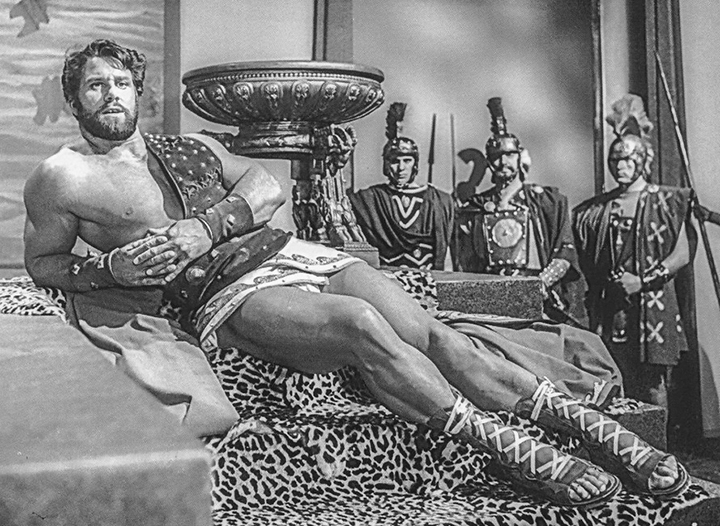
I spent many Sunday afternoons watching these movies instead of playing outside in the fresh air and sunshine, and I still feel a twinge of guilt when I see one now. But those were blurry prints on low-res screens — the big, boxy TV sets of memory. To see this restored print of “Hercules and the Captive Women” on HDTV wipes away those little stresses of childhood.
In the story, ancient Greece is divided into Thebes, Athens and Sparta, “each ruled by its own king.” So naturally, they can’t agree on anything. “An evil is upon us,” warns the blind prophet Tiresias (Nando Tamberlani), without supplying further details. “Greece is bleeding! This blood is not from wounds but falls from the heavens!” rants a random villager.
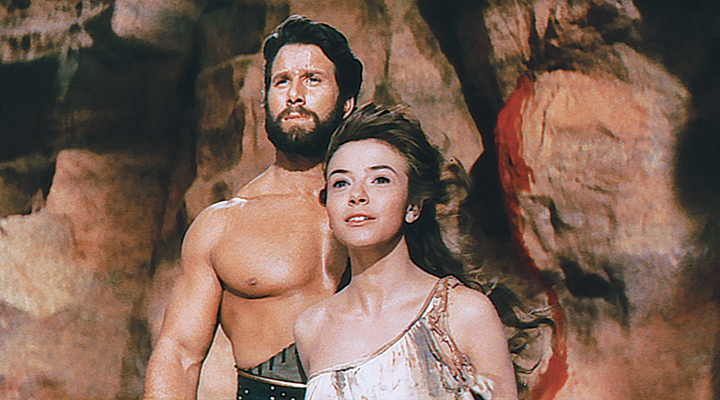
Thebes’ king, Androcles (Ettore Manni), sets out to find and vanquish this vague threat with his loyal strongman Hercules (Reg Park), himself joined by son Illo (Luciano Marin) and pet little person Timotheus (Salvatore Furnari). After a storm rocks their ship, an unconscious Hercules floats on driftwood to a misty, mysterious shore, where he finds the forms of women carved into a rocky cave entrance.
But wait — one of them is alive! It’s beautiful young Ismene (Laura Efrikian), who is part human, part rock, and implores of Hercules: “Kill me!”
She is guarded by Proteus, son of the god Uranus. Proteus is a shift-shaper who takes the form of a lizard monster (it’s a joke, but a good one), fire, a snake, a lion, a crazy bird and finally, back to the lizard monster. Herc kills Lizard Proteus by tearing off its horn —things gets bloody — thus restoring Ismene to, we assume, 100-percent human form.
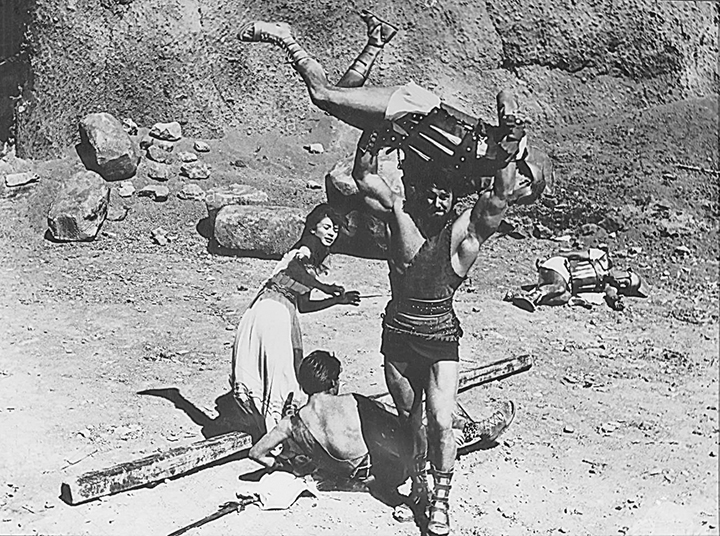
Ismene leads Hercules to her homeland of Atlantis, which is ruled by her mother, the alluring, conniving Queen Antinea (Fay Spain). But this is not a happy reunion. Says the queen: “On the day that a daughter of mine shall survive me, it is written in the ancient books, Atlantis will be destroyed.”
And so, Antinea again orders her daughter’s execution. To boot, the queen is miffed at Hercules for killing Proteus, which will surely anger Atlantis’ protector, Uranus.
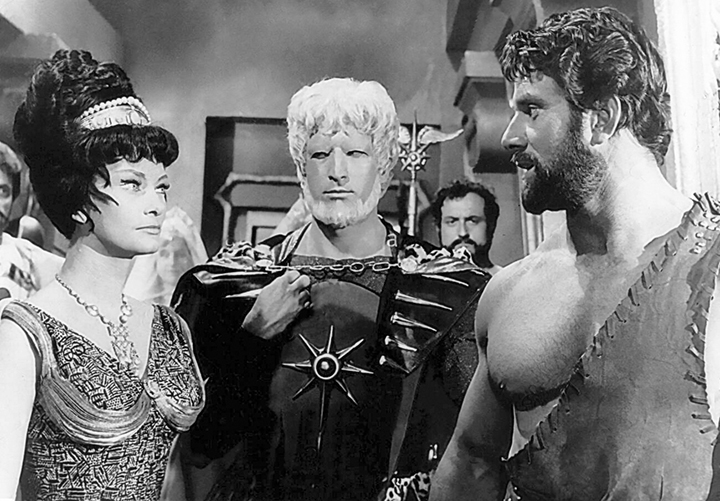
Antinea and Hercules enter into a cat-and-mouse game akin to that of Mary Astor and Humphrey Bogart in “The Maltese Falcon.” Or, in a more-apt analogy, Julie Newmar and Adam West in “Batman.”
Meanwhile, Ismene is again rescued — this time by Illo, who immediately falls in love with her. (Girls like Ismene must be hard to come by on Thebes.)
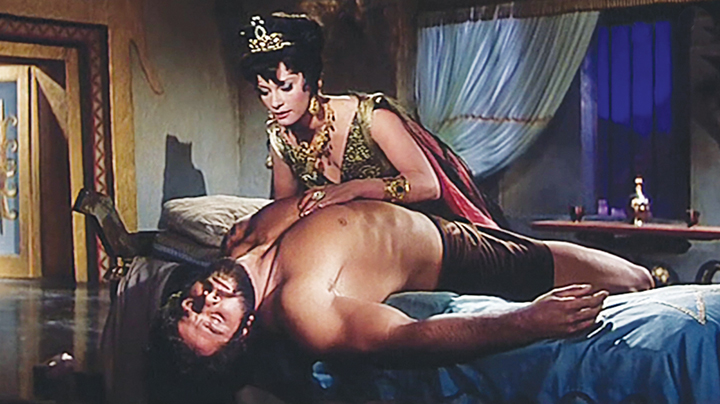
Like I said, Park can be a goofball. He has the face and beard of a Brooklyn hipster shopping for pickling spices, on the body of an ’80s Mattel Hulk Hogan toy. But Parks’ humor fits in well with the tone set by Cottafavi.
The once and future Mr. Universe might very well have possessed the biggest biceps and pecs of all movie Hercules. (When Antinea thinks she has successfully drugged Herc into unconsciousness, she can’t resist copping a discreet feel.) Park apparently loved to show off his physique by posing in repose.
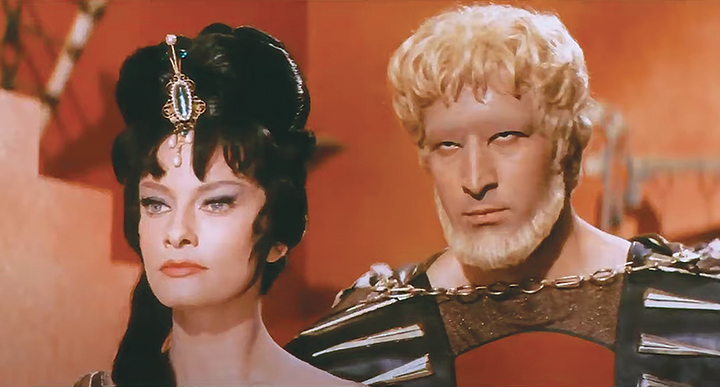
All Hercules movies push the envelope in the realm of manly pulchritude. This one is particularly perilous for heterosexual male viewers. Every dude in the movie seems to be wearing hot pants. During scenes of battle, splayed man-crotch abounds.
The character of Timotheus is also problematic. The actor who plays him, Furnari, was a person with dwarfism who here looked to be in his 40s. But Herc treats Timotheus like a 4-year-old boy, picking him up, cradling him, and tousling his hair. (Yikes.)
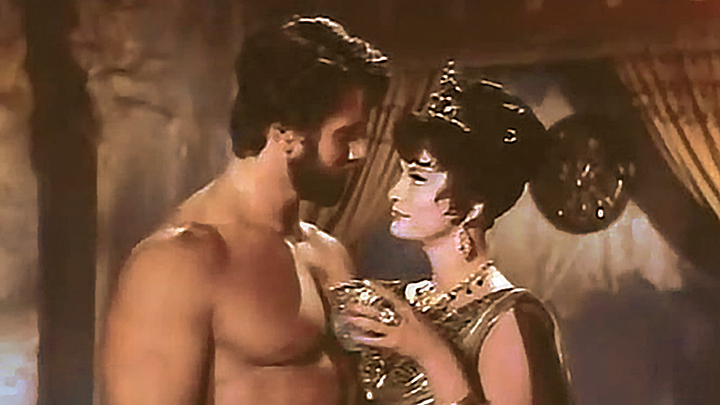
And here’s a drinking game idea: Sup from a goblet every time the word “Uranus” is uttered. You will hear many unfortunate phrases in this film, such as “the blood of Uranus” and “the power of Uranus” and “dedicated to Uranus.”
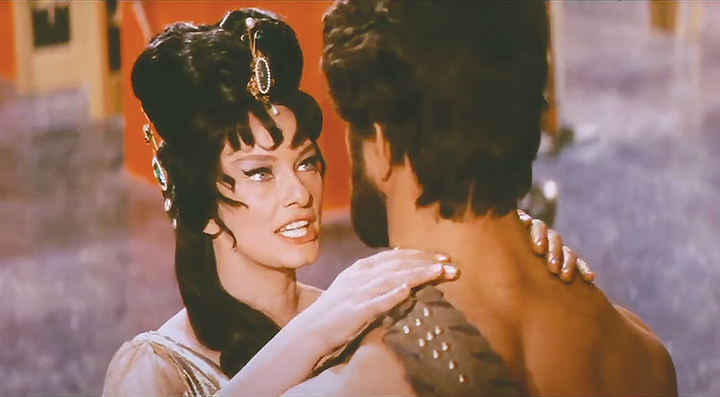
Extras include “Mystery Science Theater 3000’s” spoofing of the film from 1992; Ballyhoo Motion Pictures’ short documentary tracing these so-called “peplum” films to Italian neorealism; and audio commentary by Tim Lucas, onetime editor of Video Watchdog and a biographer of Italian filmmaker Mario Bava. Lucas tells us that the Italian cut of “Ercole alla conquista di Atlantide” (the original title) included a scene of Illo kissing a black dancing girl, which was excised to appease the American market. (We’ve always been yahoos, haven’t we?)
